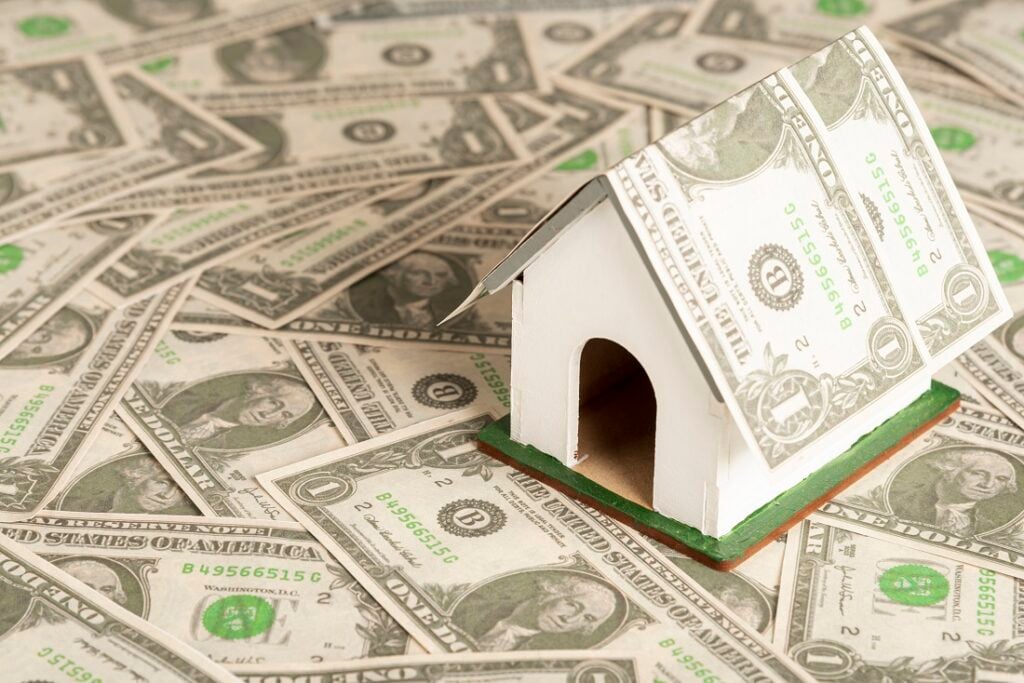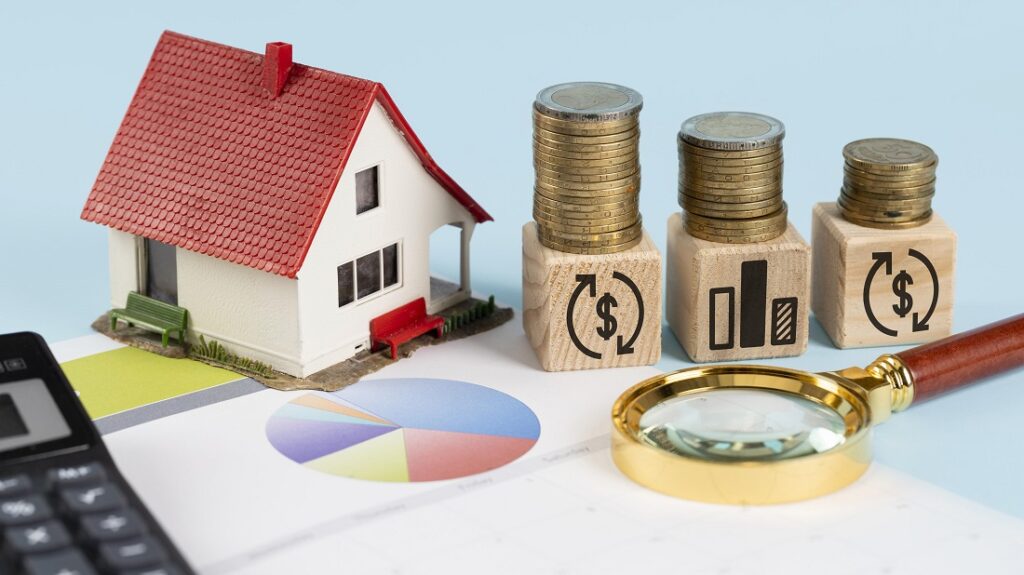Capital Expenses in Real Estate: 10 Essential Facts About

In the realm of real estate, understanding capital expenses is not just important, it’s essential. This article will delve into the intricacies of capital expenses, often referred to as capex, in the real estate sector. We’ll explore what they are, why they matter, how to calculate them, and much more.
Table of Contents
What are Capital Expenses?
Capital expenses, often abbreviated as capex, are substantial costs that a company incurs to either acquire, maintain, or improve a long-term asset such as property, buildings, or equipment. In the context of real estate, capital expenses are significant investments made towards improving a property, extending its life, or increasing its value.
Unlike operating expenses, which are the regular costs associated with the day-to-day operations of a property, capital expenses are not incurred regularly. They are typically one-time significant investments aimed at enhancing the property’s value or extending its life. For instance, if a property owner purchases a new HVAC system to replace an old, inefficient one, the cost of the new system would be considered a capital expense. Similarly, costs associated with major renovations, such as installing a new roof or upgrading the electrical system, are also classified as capital expenses.
It’s important to note that not all property-related expenses qualify as capital expenses. Routine maintenance and repair costs, such as painting or fixing a broken window, are considered operating expenses, not capital expenses. The key difference lies in the purpose of the expense: operating expenses are for maintaining the property’s current condition, while capital expenses are for improving the property or extending its useful life.
Understanding capital expenses is crucial for property owners, investors, and managers. These expenses can significantly impact a property’s value, profitability, and tax situation. Therefore, effective management of capital expenses is a key aspect of successful real estate investment and property management.
Why are Capital Expenses Important in Real Estate?

Capital expenses (capex) hold a significant position in the real estate sector for several reasons. They directly influence a property’s valuation, its net operating income, cash flow, and have substantial tax implications. Let’s delve into each of these aspects:
- Property Valuation: Capital expenses are investments made to improve a property, extend its life, or increase its value. For instance, a new roof, an upgraded HVAC system, or a renovated kitchen can significantly enhance a property’s market value. Therefore, capex is a critical factor in property valuation.
- Net Operating Income and Cash Flow: Net Operating Income (NOI) is a key metric in real estate, calculated as the total income from a property minus operating expenses. Since capital expenses are not considered operating expenses, they do not directly reduce the NOI. However, they do impact the cash flow, as they represent significant outlays of cash. Therefore, understanding and managing capex is crucial for maintaining healthy cash flow.
- Tax Implications: For tax purposes, capital expenses and operating expenses are treated differently. Operating expenses can be fully deducted in the year they occur. However, capital expenses must be capitalized and depreciated over the useful life of the asset, which is typically several years. This depreciation can provide a tax shield, reducing taxable income over the depreciation period.
- Long-term Profitability: Capital expenses, while often large and infrequent, are investments in the property that can lead to increased profitability over the long term. For example, a capex project like a major renovation could allow for higher rental rates, leading to increased income over time.
Capex expenses play a vital role in real estate investment and management. They are a key consideration in property valuation, income calculation, tax planning, and long-term profitability. Understanding and effectively managing these expenses is a critical skill for any real estate investor or property manager.
How to Calculate Capital Expenses

Calculating capital expenses in real estate involves identifying all significant property improvements or acquisitions, determining the cost of each, and calculating the depreciation for each capital expense. Here’s a more detailed step-by-step guide:
- Identify Capital Expenses: The first step is to identify all the significant improvements or acquisitions made to the property. These could include things like a new roof, an HVAC system upgrade, a major kitchen renovation, or the addition of a new wing to the property.
- Determine the Cost: Once you’ve identified the capital expenses, the next step is to determine the cost of each improvement or acquisition. This should include all costs directly associated with the improvement or acquisition, such as labor costs, materials, and any fees or permits.
- Calculate Depreciation: Capital expenses are depreciated over the useful life of the asset. This means that instead of deducting the entire cost in the year it was incurred, you spread out the cost over several years. The method most commonly used for this in real estate is straight-line depreciation, where the cost is divided evenly over the asset’s useful life.
Here’s a more detailed table to illustrate:
| Improvement/Acquisition | Cost | Useful Life | Annual Depreciation |
|---|---|---|---|
| New Roof | $20,000 | 25 years | $800 |
| HVAC System Upgrade | $15,000 | 15 years | $1,000 |
| Kitchen Renovation | $25,000 | 30 years | $833 |
| New Wing Addition | $100,000 | 40 years | $2,500 |
In this example, the total capital expenses for the year would be $160,000 ($20,000 + $15,000 + $25,000 + $100,000). However, only the annual depreciation amounts would be deductible each year for tax purposes ($800 + $1,000 + $833 + $2,500 = $5,133).
Calculating and tracking capital expenses accurately is crucial for managing a property’s finances and for tax planning. It’s often recommended to work with a real estate accountant or financial advisor to ensure these calculations are done correctly.
Capital Expenses and Depreciation

In the world of real estate, capital expenses and depreciation are closely linked concepts. When a property owner incurs a capital expense, such as installing a new roof or upgrading an HVAC system, this cost is not immediately fully deductible from their taxable income. Instead, it must be spread out over several years through a process known as depreciation.
Depreciation is a method of allocating the cost of a tangible asset over its useful life. In other words, it’s a way of recognizing that an asset like a building or a piece of equipment loses value over time due to factors like wear and tear, age, or obsolescence.
Here’s how it works in the context of capital expenses in real estate:
- Determining the Useful Life: The first step in calculating depreciation is determining the “useful life” of the asset — that is, the number of years the asset is expected to be in service. For example, the IRS has determined that the useful life of a residential rental property is 27.5 years, while commercial property has a useful life of 39 years.
- Calculating Annual Depreciation: Once the useful life has been determined, the cost of the capital expense is divided by the number of years in the useful life to calculate the annual depreciation. For example, if a property owner spends $27,500 on a new roof for a rental property, the annual depreciation would be $1,000 ($27,500 divided by 27.5 years).
- Deducting Depreciation: Each year, the property owner can deduct the depreciation amount from their taxable income. This reduces the amount of income that is subject to tax, providing a significant tax benefit over time.
- Depreciation Recapture: It’s important to note that when the property is sold, the IRS requires property owners to pay a tax on the depreciation that was deducted. This is known as “depreciation recapture”. However, there are strategies, such as a 1031 exchange, that can defer this tax.
Understanding the relationship between capital expenses and depreciation is crucial for real estate investors and property owners. It can significantly impact the profitability of a real estate investment and should be a key consideration in any real estate financial analysis.
Managing Capital Expenses

Managing capital expenses (capex) effectively is a critical aspect of real estate investment and property management. It involves strategic planning, budgeting, and control measures to ensure that these significant costs are handled efficiently and do not adversely impact the property’s profitability. Here’s a closer look at how to manage capital expenses:
- Strategic Planning: Effective capex management begins with strategic planning. This involves identifying potential capital expenses before they become urgent. Regular property inspections and maintenance can help identify areas that may require significant investment in the future, allowing for proactive planning.
- Budgeting: Once potential capital expenses have been identified, they should be incorporated into a capital expenditure budget. This budget should include both expected costs (like a roof replacement in a few years) and a contingency for unexpected costs (like an emergency HVAC system repair).
- Prioritizing: Not all capital expenses are equally urgent or beneficial. Part of managing capex involves prioritizing expenditures based on factors like the urgency of the need, the potential to increase property value, and the impact on the property’s functionality or appeal to tenants.
- Cost Control: Keeping capital expenses under control is another crucial aspect of capex management. This might involve negotiating with contractors for better pricing, seeking out cost-effective solutions, or even doing some tasks in-house if feasible and cost-effective.
- Monitoring and Review: Regularly reviewing capital expenses against the budget is important to ensure that spending is on track and to identify any areas where costs may be creeping up. This allows for adjustments to be made before costs spiral out of control.
- Role of Property Management: A good property management company can play a vital role in managing capital expenses. They can handle tasks like regular property inspections, coordinating with contractors, and even helping with budgeting and strategic planning.
Capital Expenses and Real Estate Investment

Capital expenses (capex) play a pivotal role in real estate investment. They directly influence the profitability of a property and are a key consideration in any investment analysis. Here’s a closer look at how capital expenses intersect with real estate investment:
- Impact on Profitability: Capital expenses are significant costs that can directly affect a property’s profitability. While these expenses can enhance the value or extend the life of a property, they also represent a substantial outlay of cash. Therefore, a property with high capex may yield lower returns than a similar property with lower capex, all else being equal.
- Investment Analysis: When analyzing a potential real estate investment, it’s crucial to factor in estimated capital expenses. This includes not only the immediate capex needs but also anticipated future expenses. For instance, if a property will need a new roof in a few years, this cost should be factored into the investment analysis.
- Cash Flow Considerations: Capital expenses can have a significant impact on a property’s cash flow, especially in the year they are incurred. Even though these costs are depreciated over several years for tax purposes, the actual cash outlay occurs when the improvement or acquisition is made. Therefore, investors need to plan for these expenses to ensure they don’t disrupt the property’s cash flow.
- Risk Management: Capital expenses also play a role in risk management. A property with high anticipated capex could be seen as a riskier investment due to the potential for cost overruns or unexpected expenses. On the other hand, a property with recent capital improvements could be seen as less risky, as major components like the roof or HVAC system may not need replacement for several years.
- Exit Strategy: Finally, capital expenses can influence a property’s exit strategy. A property with high capex might be harder to sell at a premium price, while a property with recent, high-quality improvements might attract more buyers and command a higher price.
Understanding and effectively managing capital expenses is a critical skill for any real estate investor. These expenses can significantly impact a property’s profitability, cash flow, risk level, and exit strategy, making them a key consideration in any real estate investment decision.
Conclusion
Understanding capital expenses in real estate is more than just a financial exercise—it’s a strategic necessity for anyone involved in property investment or management. These significant costs, whether they’re for acquiring, improving, or maintaining a property, can have a profound impact on a property’s value, its profitability, and its appeal to both tenants and potential buyers.
From calculating capital expenses and understanding their role in property valuation, to managing these costs effectively and considering their impact on real estate investment, we’ve covered a lot of ground in this article. But the key takeaway is this: effective management of capital expenses can be a game-changer in the world of real estate.
Whether you’re an investor analyzing a potential investment property, a property manager overseeing a portfolio of properties, or a homeowner considering a major renovation, being aware of capital expenses and how to manage them can make a significant difference to your bottom line.
But remember, while this article provides a comprehensive overview, every property and situation is unique. Therefore, it’s always a good idea to consult with a real estate professional or financial advisor when dealing with significant capital expenses.
In the world of real estate, knowledge truly is power. And with this understanding of capital expenses, you’re now better equipped to make informed, strategic decisions that can enhance the value of your property and maximize your returns. So keep learning, keep growing, and let the world of capex in real estate become a tool for your success.